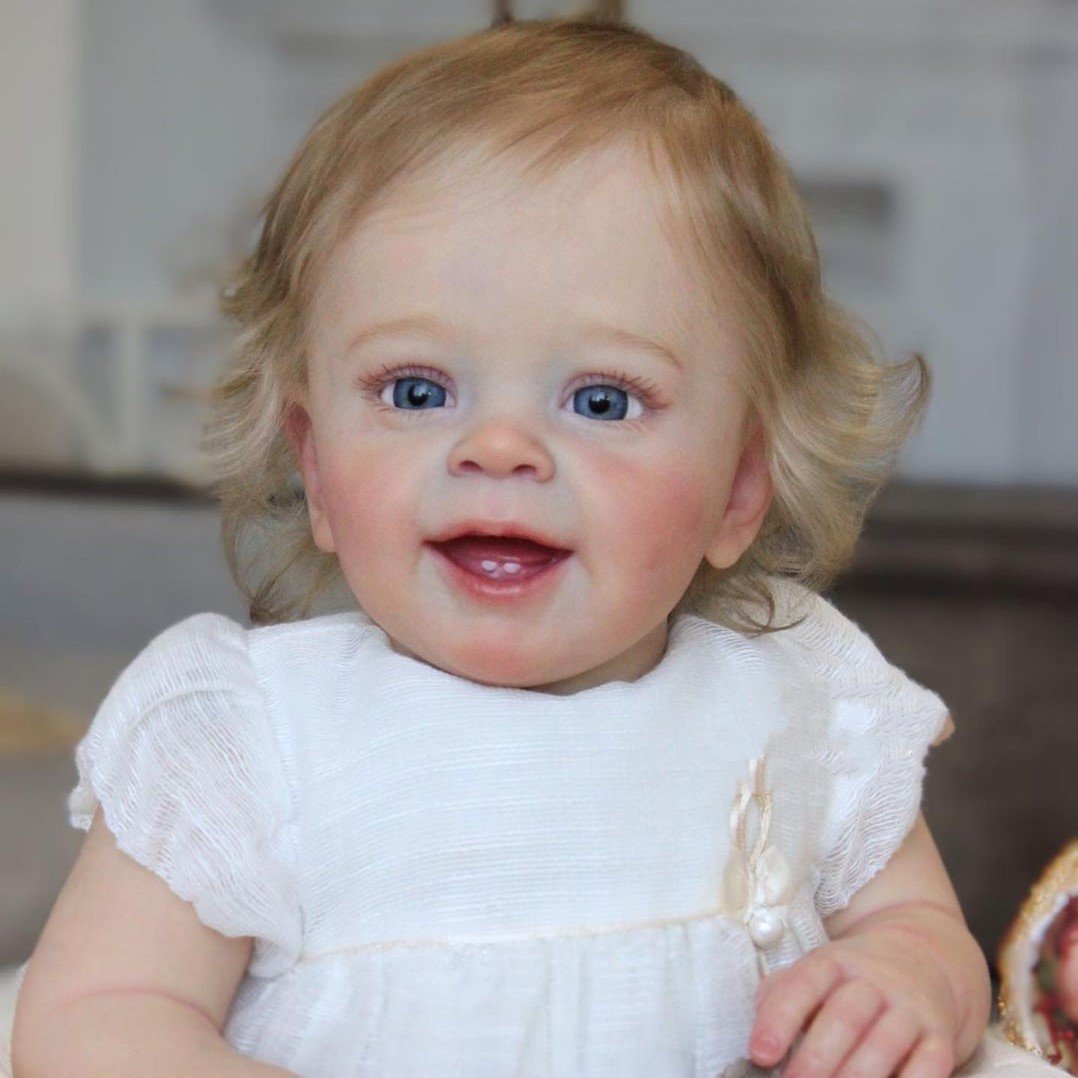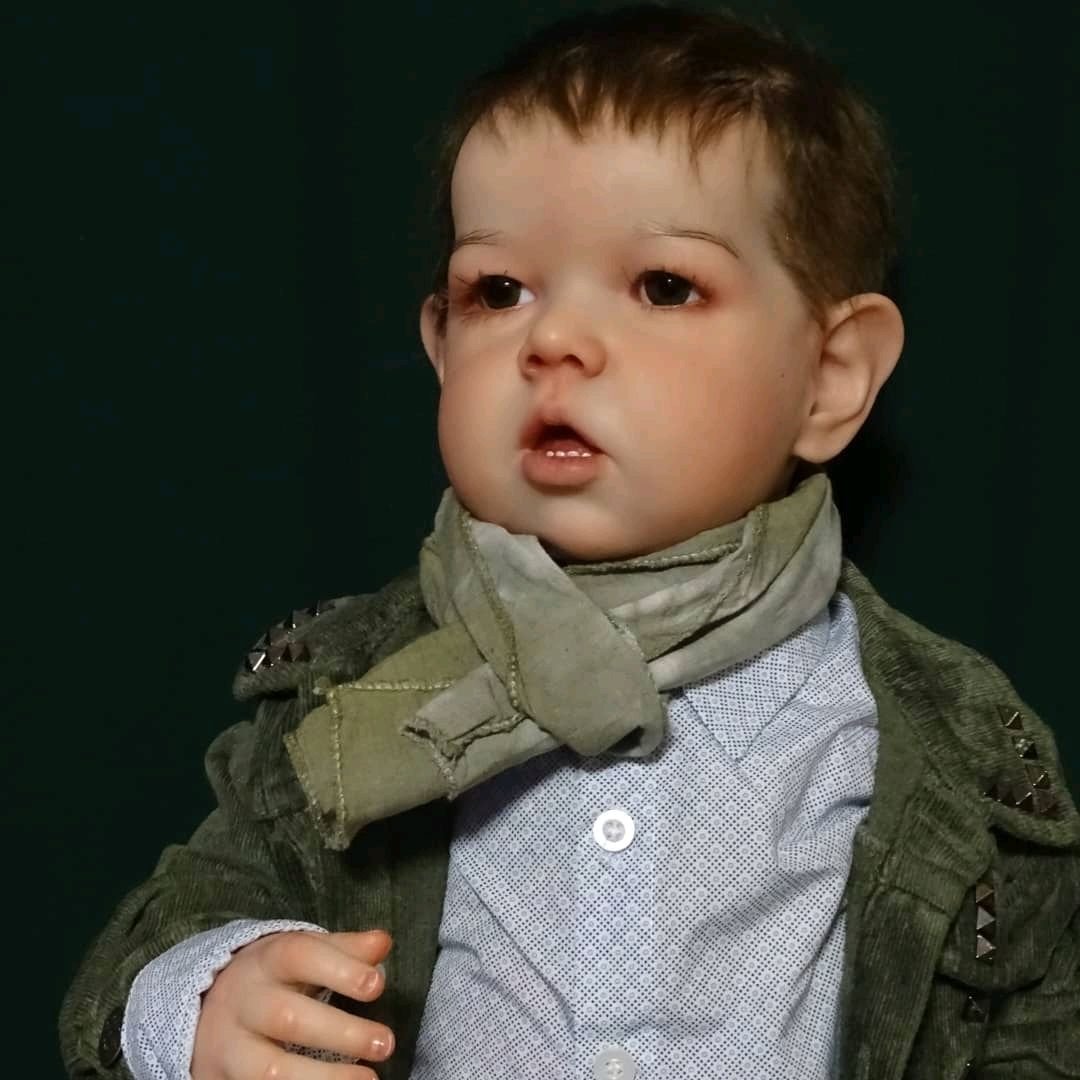No products in the cart.
The mention of the river goddess Ganga occurs throughout the eighteen parvas or sections of the Mahabharata in one form or another. But it comes clearly for the very first time in the very first section, i.e. in the Adi Parva, where Ganga in her human form, meets King Shantanu of the Bharata and subsequently the Kuru dynasty, who were the rulers of Hastinapura.
Now it so happened that in the Ikshvaku race, was born a great king Mahabhisha. He was always truthful in speech, strong, and ruled the earth justly. He performed numerous religious sacrifices and by performing one hundred Rajasuya and one thousand Ashvamedha sacrifices, he pleased Indra, and thus attained heaven. It so happened that one day in heaven all the celestials, royal sages, and other heavenly beings were worshipping Brahma. Mahabhisha was also present in this celestial gathering. Ganga also came to pay her respects dressed in a white garment shining as the moonbeams.
Mahabhisha was enraptured by her beauty and was gazing at her. Feeling the gaze of Mahabhisha, Ganga looked at him and both their eyes locked together. By a sudden gust of the wind, her garment was displaced and all the celestial beings lowered their heads so as not to embarrass Ganga, but Mahabhisha went on gazing at her exposed figure. This enraged Brahma and he cursed Mahabhisha to be born on earth and suffer the agonies of human beings. He also cursed Ganga to be born on earth and to give Mahabhisha such mental sufferings that he would almost die with grief and would feel a great anger, upon which Mahabhisha’s curse would end. In course of time, Mahabhisha was born as Shantanu and Ganga marries him to fulfill Brahma’s curse.
Shantanu was born as the son of King Pratipa. On the banks of the river Ganges, a great King Pratipa of the Bharata line was practicing strict austerities in order to have an offspring. The heavenly maiden Ganga saw Pratipa and approached him. Ganga, the celestial maiden, woman of ravishing beauty and generously endowed with all the feminine charms went up to the royal sage and sat on his right thigh, which in manliness resembled like a Sala tree. As the maiden of exquisite beauty sat on his thigh, King Pratipa asked that what was her desire and Ganga answered that she desired him as her husband. The foremost of the Kurus, King Pratipa replied that to refuse a woman who came of her own accord is never taught by the wise, yet out of lust he has never gone after women or others’ wives and this was his vow. Ganga told him that she was neither ugly nor inauspicious, she was gifted with rare beauty and being a celestial maiden, she was worthy of being enjoyed and so she should become her queen.
King Pratipa was greatly moved by her intelligent argument, and replied that indeed, she was of heavenly beauty, but under no circumstances could he break his vow. Moreover, he could not take her as an object of desire, as she had embraced him by sitting on his right thigh, which is the place for daughters and daughters-in-law. The left thigh is meant for the wife, on which Ganga did not sit. Therefore, King Pratipa accepted Ganga as his daughter-in-law and accepted her for his yet unborn son. Hearing this, Ganga replied, that so be it, and promised to become the wife of his son. She would greatly increase the virtues of the noble Bharata race and his son would become a great and powerful ruler. Ganga also laid down a condition, that his son should neither question any of her acts nor should speak any unkind word and if he does so, then she will leave him forever. Having said this the heavenly damsel, Ganga, disappeared from the royal sage Pratipa’s sight.
Thereafter, King Pratipa and his queen underwent extreme purification rites in order to give birth to a great and a noble soul. In time, a son was born and he was named Shantanu that meant “son of the peaceful”, because King Pratipa had attained peace by perfect control over his passions and desires. As per the curse of Brahma, Mahabhisha was born as Shantanu. He grew up as the best of the Kurus and realizing that one’s deed alone gives indestructible bliss; he always practiced virtue with utmost devotion. When Shantanu perfected all the arts befitting a king and all the virtues befitting a royal sage, King Pratipa and his queen decided to retire to the forest and lead their vanaprastha or forest dweller lives. Before leaving, Pratipa crowned Shantanu the King of Hastinapura and narrated to him how a celestial woman had approached him and how he had promised her that his son would marry him. He urged Shantanu that if he chanced to meet any woman of celestial beauty in secret, and if she asks to become his queen, then he should accept her. He should not ask who she is, where has she come from, or question any of her acts, or speak any unkind word to her, and simply marry her unconditionally. Thus commanding his son, King Pratipa retired to the forest along with his queen.
King Shantanu was highly intelligent and endowed with magnificent splendour like Indra himself. One day while he was taking a walk along the banks of the Ganges, he came to the area that was usually inhabited with CharaGas and Siddhas. Here, his eyes fell upon a damsel of bewitching beauty. Such was the radiance and splendour emanating from the blazing maiden that it seemed as if goddess Lakshmi had been incarnated. Dressed in spotless white garments of fine texture that seemed like lotus filaments, faultless and pearly teeth that matched her ornamental pearls and other exquisite jewellery that she was bedecked with, this lovely maiden captured the heart of Santanu. The King went on gazing at the splendid woman for a long time as if drinking her charming countenance, yet even after repeated and many draughts; it seemed to Shantanu that his thirst was still not quenched. The celestial maiden noticed Shantanu agitatedly moving about. She herself was enamoured of his royal personage and shining grandeur and her heart was set aflutter.
She gazed and gazed on Shantanu, who in turn could not take his eyes from her. Softly, Shantanu then approached her and addressed her that whoever she may be, a devi, an apsara, a gandharva, a rakshasini, a yakshini, a nagin, or a manavi, it did not matter to him, and solicited the faultless beauty to be her queen. Hearing such sweet and soft words, the maiden of perfect features, smiled at the eager and handsome monarch and said that she agreed but only on a condition that none of her actions should be questioned and that he should always behave kindly towards her. If he ever questioned her acts or even spoke a single unkind word, she will leave him forever. Shantanu agreed.
The damsel was very happy in obtaining the leader of the most superior Bharata race as her husband. Shantanu was equally pleased with having a wife of extraordinary qualities and of heavenly beauty. They both lived a happy conjugal life as husband and wife. The damsel looked after all his comforts, and Shantanu never spoke an unkind word or questioned any of her acts. Ganga of the three courses, celestial, terrestrial, and subterranean, lived happily as Shantanu’s wife, by making him pleased with her affection and care, her love and dutiful conduct, her dance and music, her cooking and fine arts. Shantanu completely drowned himself in Ganga’s charms and Ganga fully gratified Shantanu. Thus in mutual love and adoration, seasons and years went by and they were blessed with eight sons, each of celestial beauty.
King Shantanu and Queen Ganga were blessed with eight sons; however, as soon as the birth took place, Ganga took each of her sons to the river Ganges and smilingly drowned them into the river saying that this was for their own good. One by one, seven sons of King Shantanu perished, but true to his promise, he never questioned Ganga, or spoke harshly with her. Yet, Shantanu suffered painful mental agonies and remained in extreme sorrow at the loss of his sons. When the eighth son was about to be killed likewise by Ganga, the sorrowful King could no longer contain his grief of losing seven sons, and out of anger, thus came forward and stopped Ganga from throwing his eighth son in the river. He angrily commanded Ganga not to kill his son, and asked her who she was and how could she herself kill her own children? By being a murderess of her own children, she was committing an unpardonable sin and asked her that does not the weight of this sin bear heavy on her heart? Ganga looked with sad and loving eyes at Shantanu and said that she was Ganga, the daughter of Brahma, the daughter of Himavan, the daughter of Jhanu, and that she will not kill this eighth son as he had stopped her. She reminded Shantanu that because he questioned her act and spoke unkindly to her, she will no longer live with him and shall go away to heaven. But before departing, she answered Shantanu’s questions.
Answering Shantanu’s questions, Ganga informed that their eight sons were the eight Vasus, who had to take human forms and that she killed seven of them as soon as they were born, only to free them from Rishi Vashishtha’s curse. Thereafter, she narrated the whole story of the Rishi Vashishtha’s curse and told Shantanu that his eighth son was Dyaus, and he was destined to live long as a mortal and suffer many earthly agonies.
Ganga recounted how the Vasus were cursed by Rishi Vashishtha. On the mountain Meru, a magnificent forest was present that abounded in sweet roots and water. In these woods, the ashrama of Varuna’s son, Rishi Vashishtha was also present and he practiced severe penances and austerities in these beautiful and peaceful surroundings. It so happened that Surabhi, the daughter of Daksha, had by her relations with Rishi Kashyapa, brought forth a daughter in the form of a wish-fulfilling cow, and named her as Nandini. Rishi Vashishtha to complete his Homa rites had obtained Nandini along with her calf and they roamed this forest without any fear. One day, the eight Vasus namely, Agni, Prithvi, Vayu, Antariksha, Aditya, Dyaus, Chandramas, and Nakstrani, came to this forest along with their wives, to have an outing. They enjoyed the woods and marveled at the unique flora and fauna. As they were wandering around, the slender-waisted wife of Dyaus saw Nandini grazing the long grass. She gazed at the fine-looking cow who had all the auspicious signs like full udders, beautiful hoofs, fine tail, large eyes, and graceful movement. She called Dyaus to look at this excellent cow and he too admired at the beauty of Nandini. Dyaus told her wife that Rishi Vashishtha inhabited this forest and the cow is none other but Nandini and belonged to the Rishi. It is said that if any mortal drinks the milk of Nandini then that mortal shall enjoy youth for ten thousand years. When the dove-eyed wife of Dyaus heard this, she recollected that on earth, she had a friend named Jitavati, daughter of the royal sage Usinara, to whom she would like to gift Nandini, so that by drinking the cow’s milk her friend may be free from disease, old age, and decrepitude. Thus, the wife of Dyaus implored him to fetch it for her even if he had to steal it. Dyaus, in an attempt to humour his wife, stole the cow Nandini, with the aid of the other Vasus. Dyaus, at that time was enamoured by the lotus-eyed and fair-thighed wife of his, and he had forgotten that the sin of stealing a cow is unpardonable and by such a vile act, he was bound to fall from heaven.
In the evening, when Vashishtha returned to his hermitage after collecting twigs, flowers and fruits, he could not see Nandini. He searched for her in the woods, but still could not find her. Then with his ascetic vision, he saw how the Vasus stole Nandini. His anger was immediately incited and he cursed the Vasus to be born on earth as mortals. When the Vasus came to know of the curse, they went to the great Rishi and begged for his forgiveness. The Rishi said that his curse cannot be taken back, but within a year of human existence, the seven Vasus would come back to heaven, excepting Dyaus, who for his shameful and sinful act will have to spend a long time on earth and suffer much. He shall be noble and virtuous, fully conversant with all the scriptures, well versed in the use of arms and statecraft, but shall never marry, shall never have any offspring, and shall never enjoy the company of women. Thus pronouncing, the great Rishi of great ascetic wealth closed his eyes and resumed his meditation.
Now the Vasus were greatly agitated and they decided not to be born in any human womb. They knew that Ganga was also under a curse by Brahma to be born as a human being. So they thought if Ganga agreed then they would be born as Ganga’s sons, and thus would obtain a divine womb. The Vasus went to goddess Ganga and implored her to be their mother. They pleaded with Ganga that as soon as they are born, to cast them into the river so that they may experience the least suffering and may return to heaven at the earliest. Ganga agreed to grant them this boon. Thus, the eight Vasus were reborn as the eight sons of Ganga and Shantanu. Accordingly, Ganga freed all the seven Vasus from the curse of sage Vashishtha by drowning them as soon they were born, excepting Dyaus, who was destined to suffer a long human life. Dyaus was the child whom Shantanu had saved from being drowned by Ganga. This child was named as Devav[ata, also known as Gangeya and Gangadatta, and later was known as Bhishma due to his terrible and awe-inspiring vow of remaining a celibate throughout his life.
Thus answering the questions of Shantanu, Ganga along with her newborn son, took leave of Shantanu and said that she shall teach him all the arts and sciences befitting a king and shall duly send him back after his teaching is complete. So saying, Ganga along with her baby son disappeared. After several years, when the education of Devavrata was complete, Ganga presented him to King Shantanu saying that he shall be remembered for his valor and as a keeper of vows. So saying, Ganga handed over Devavrata to King Shantanu and departed to her heavenly abode. Devavrata grew up to become the great Bhishma, who was taught political science by Sage Brihaspati-the teacher of the gods; vedas and vedangas by Sage Vasishtha; and archery by Sage Bhargava or Parshurama. And so, Bhishma became an outstanding administrator and an invincible warrior.
Handcrafted by Artists
Sweet House Reborns® offers a variety of unique and exclusive collectible reborn baby dolls, including many lifelike Baby Dolls, Newborn Toddlers, Sleeping Reborns, Boy Baby Dolls, Girls Silicone Babies, each crafted with exquisite craftsmanship and unmatched quality.
With a dazzling collection of reborn baby dolls, kids silicon dolls, smiling dolls, you’re sure to find a doll that will capture your heart. Get ready to experience beautiful creations, exquisite details and expertly tailored clothing when you shop our unique gallery of collectible reborn dolls. Plus, for the little doll lovers in your life, we also have dolls for children sure to inspire hours of fun. With so many dolls to choose from, it will surely warm your heart. Which one will have a forever home with you?
Make With Love
Sweet House Reborns® is a mom-owned and operated, eco-inspired and environmentally responsible reborn baby doll online store. Our mission is to keep our children safe and happy while supporting our sustainable fingerprint on the planet.
The overall philosophy of Sweet House Reborns® is that children and adults can live a life full of love with real life size silicone newborn dolls.
Children are gifts to the world, their hearts are filled with innocence and joy, and all adults were once children. Sweet House Reborns® always stands for pure love.
















